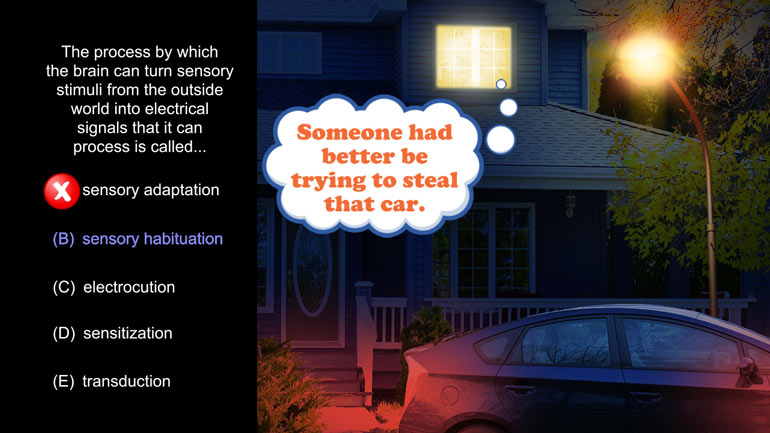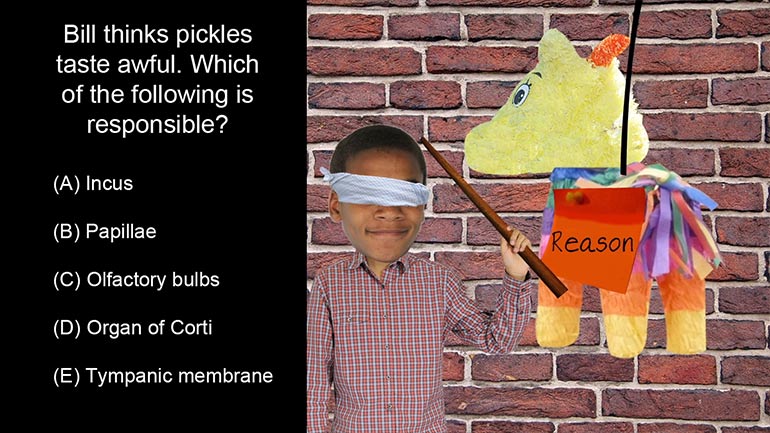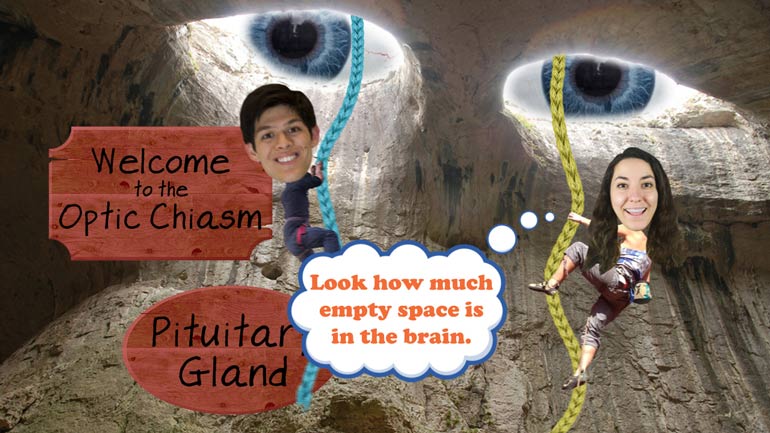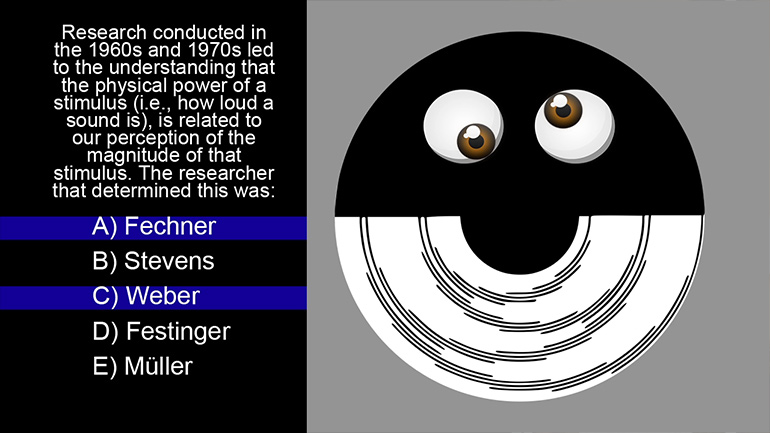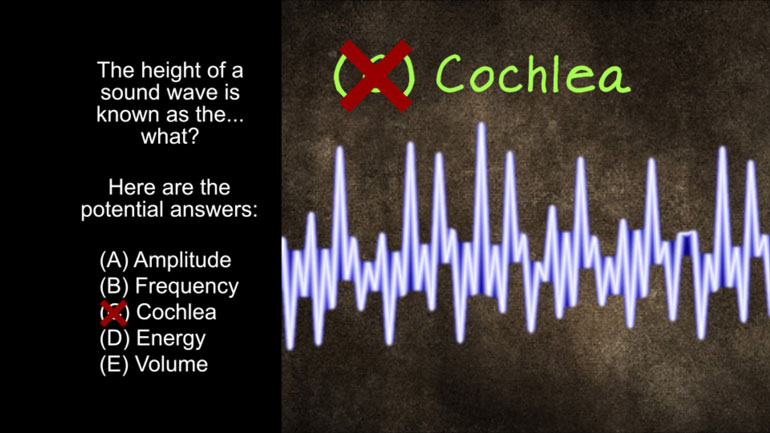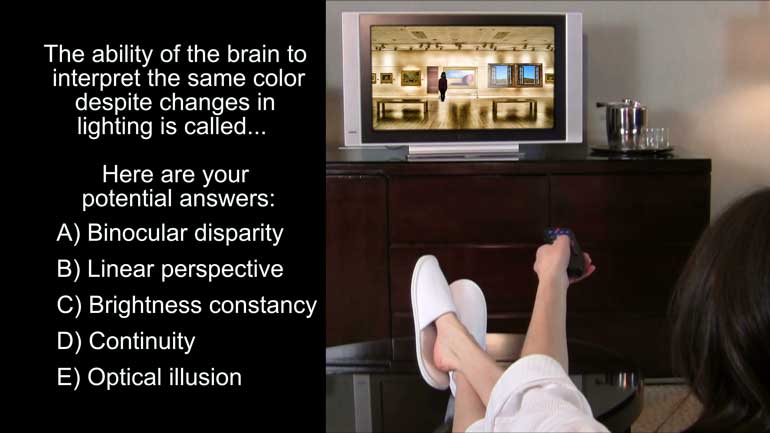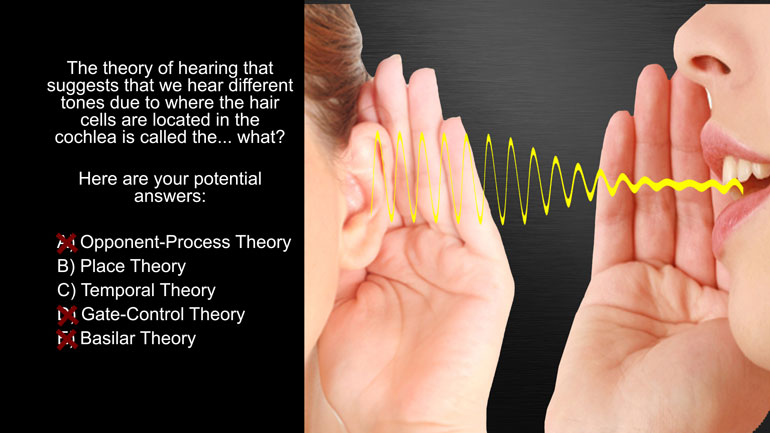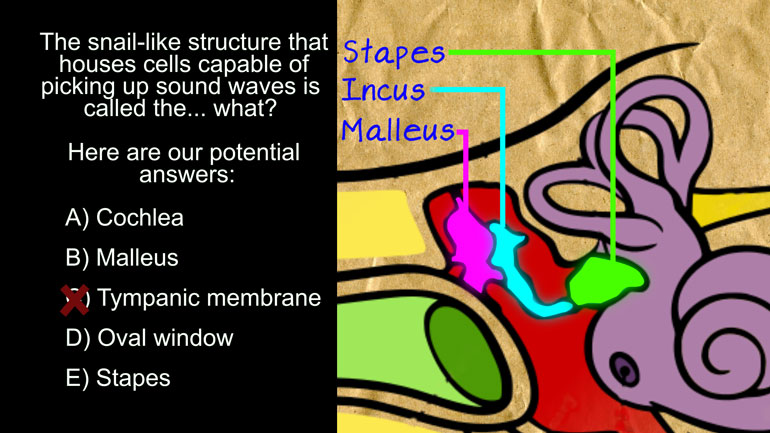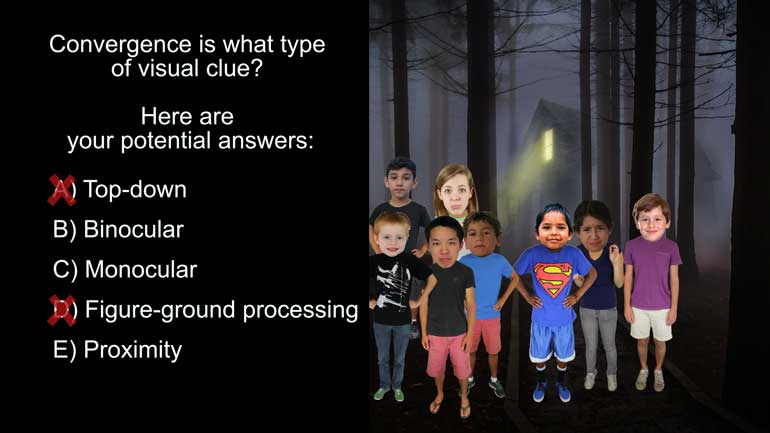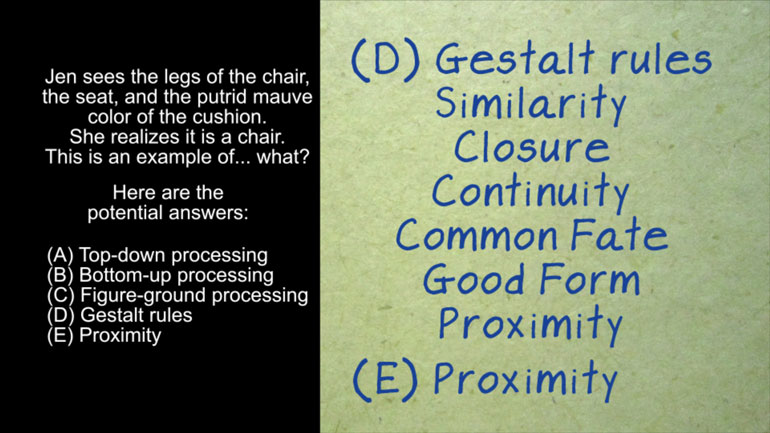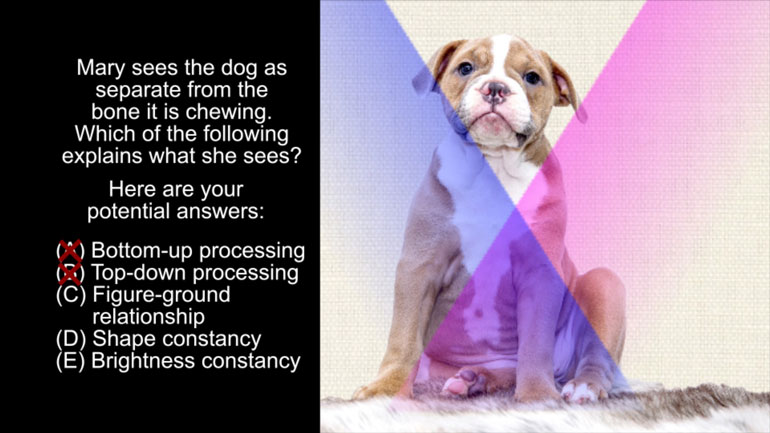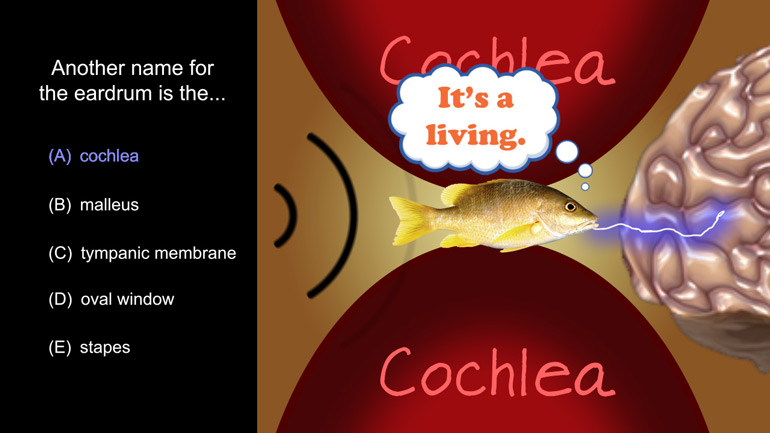ShmoopTube
Where Monty Python meets your 10th grade teacher.
Search Thousands of Shmoop Videos
Sensation and Perception Videos 15 videos
AP Psychology 1.1 Sensation and Perception. The process by which the brain can turn sensory stimuli from the outside world into electrical signals...
AP Psychology 1.2 Sensation and Perception. The cells in the back of the eye that only see in black and white are called what?
AP Psychology 2.3 Sensation and Perception. Bill thinks pickles taste awful. Which of the following is responsible?
AP Psychology 1.3 Sensation and Perception 13 Views
Share It!
Description:
AP Psychology 1.3 Sensation and Perception. What best describes Lola's ability to hear her name?
Transcript
- 00:04
and here's your shmoop du jour brought to you by names.. we
- 00:07
know she has a cool one but come on Beyonce stop telling us to say your name [Beyonce stood on a stage]
- 00:10
would having an actual conversation really hurt you? Alright, here's your
- 00:14
question Lola is at a party she's standing in a crowded room talking about [Lola talking to Beth at a party]
- 00:19
her last history exam with her friend Beth even though Lola is engrossed in
Full Transcript
- 00:23
the conversation in the room is quite loud she hears a person say her name [People talking about Lola across the room]
- 00:27
across the room what best describes Lola's ability to hear her name and your
- 00:32
potential answers ....All right let's
- 00:37
just start with habituation....Habituation refers to the process of learning in
- 00:42
which one decreases their response to repeated stimulus over time for example [A line decreasing on a graph]
- 00:47
if someone was shouting Lola's name over and over and over and over again for no
- 00:52
reason other than annoying the heck out of her she may respond to her name the [Lola looking angry at her name being shouted]
- 00:56
first few times but chances are she eventually tune it out it's like when
- 01:00
your mom yells at you to get out of bed and get ready for school so easy to tune [Mother yells at boy to wake up for school]
- 01:04
that out anyway that's habituation, it aint E. Dishabituation is when we suddenly
- 01:09
respond to that old stimulus as if it were new again so even if we learn to
- 01:14
tune out a pestering parent at seven in the morning if said pestering parent
- 01:18
decides to try a new approach say a megaphone well we might come back in we [Mother shouts through a megaphone to wake sleeping boy up]
- 01:22
also might need to change our sheets all right long story short A is not our
- 01:26
answer and B adaptation; refers to one's ability to adapt to their new
- 01:31
environment whatever it may bring whether that means Lola adapting to our [Lola adapting to the environment at the party]
- 01:35
name being yelled repeatedly or us adapting to our mom's voice amplified at
- 01:39
a ridiculously early time in the morning it's not what we're looking for so let's
- 01:44
get rid of B and divided attention is basically the act of multitasking or [Boy walking down a street and chewing gum]
- 01:48
when we're required to pay attention to two or more tasks at a given time an
- 01:53
admirable goal but not quite what we're looking for so that leaves us with D the
- 01:57
ability to focus on an important stimulus among many is known as
- 02:01
selective attention when we can quickly shift our attention to something [Boys trying to get Lola's attention at a party]
- 02:05
important like someone yelling fire or someone uttering your name
- 02:10
across the room..That's selective attention so while we can allocate our attention to
- 02:14
something specific there's always a reserve for us to quickly focus on [Room sets on fire and Lola runs away]
- 02:18
something we don't want to miss but our daily wake-up call well that's something
- 02:21
we always want to miss seriously how do we unsubscribe from this thing [Mother driving a digger to wake boy up]
Related Videos
AP Psychology 2.2 Social Psychology. Which of the following was an independent variable manipulated in Asch's research?
AP Psychology 1.1 Personality. According to Freud, these three parts of personality are constantly in conflict.
AP Psychology 1.1 Sensation and Perception. The process by which the brain can turn sensory stimuli from the outside world into electrical signals...
AP Psychology 1.1 Social Psychology. Which of the following best describes social psychology?
AP Psychology 1.1 States of Consciousness. Who conducted research on REM sleep deprivations?
